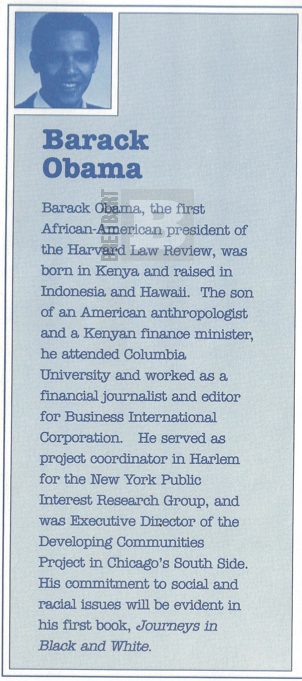Upon migrating to the United States many years ago, I embraced my new home and left the past behind. Never could I imagine that, at some point, that past would become relevant.
But now, I am compelled to talk about it again.
In the USSR, we had state-controlled media which shaped the narrative entirely.
Our founder, Vladimir Lenin, was portrayed as a noble, charismatic, and smart man -- the champion of the underdog (the working class), the seeker of equality, defeater of the rich. The humble man with common ideas who was destined for greatness.
Lenin peered at us intently from textbooks and walls. His was the face behind the good intentions that shaped our everyday life.
...
Bread in the stores was the bread. Milk was the milk. Kolbasa was the kolbasa. Everything was manufactured by the state to provide the minimum required survivability, and minimum expected functionality. Improvements in design and the manufacturing process did not exist.
The very concept of "customer convenience" did not exist. We didn't have bottles sculpted to fit the shape of your hand, nor did we have polite cashiers, for they were under no obligation to please anyone -- they worked for the state. The abacus was still in common use in our stores while American stores had electric change machines, credit card readers, and sliding doors.
Like most things, clothes were in "deficit" and thus traveled from older to younger siblings in every family over time. Broken things weren't thrown away but repaired.
Our giant lamp television was carried in the family since about the time I was born. It received three channels -- all State-controlled. On our evening news program, the Chernobyl disaster announcement was calm and lasted fifteen seconds. Our state papers, such as Pravda and Izvestia, were not read but used as invaluable sources of free toilet paper. This is not a joke.
Our propaganda put the big focus on the noble working class and how there was no such thing as a "lower" profession. Much emphasis was made on the nobility of simple working man, and certainly there is something to that.
But when the janitor receives roughly the same salary as a teacher who is paid roughly the same as a surgeon who is paid roughly the same as a programmer, all of them surrounded by peers who get paid the same no matter how well or poorly they perform, some people start carrying the team, and then they just give up. Everyone performs poorly in the end.
It was painfully obvious to everyone just how low the desire of the average person is to produce goods for other people. Without competition or opportunity to get ahead, with the state controlling production and paying equal salaries to workers regardless of their contributions, we had no concept of abundance.
The first time I entered an American food market at the age of seventeen, I froze.
Older Soviets who visited American stores for the first time, got hit harder -- all the lies they were taught from childhood through the decades of their lives -- until that last moment, they expected them to be at least partially true.
Sure, they heard stories from overseas, but come on, those were just the Potemkin villages, mirages created to make the Soviets jealous. How can one imagine the unimaginable?
"They told us in Odessa, that in San Francisco it's hard to find milk."
This is the typical Soviet mentality, and they were used to it, and they bought into it, and then they entered that American supermarket and saw the rows upon rows of milk of different brands and kinds and fat percentages.
This is where some have been known to cry. It is the realization that their lives were stolen from them by the regime. A realization of what could've been, if they had been lucky enough to be born in this place which, from everything they knew, could not possibly exist.
I now live in Northern California, in the heart of the Bay Area, thousands of miles away from my homeland.
And yet the poison of Soviet propaganda seeps through college dorms just as it did in Soviet classrooms.
People of all ages, even acquaintances that I otherwise respect and admire, are like this. They support the "progressive" leader Barack Obama, worship the nanny state, and believe in equality of outcome rather than equality of opportunity.
They badmouth capitalism and complain that only one percent of the American population has the "American dream." They buy into the class warfare rhetoric hook, line, and sinker. They want artificially raised minimum wage, government handouts, and believe that Obamacare is the greatest thing since the invention of pockets.
I look at them and the red ties materialize, familiarly, around their necks.
There are "academic" speakers now who advocate that having too many choices is "bad for you." Too stressful to choose, you see.
Living in the Soviet Union, being bombarded with similar nonsense, we had nothing to contradict it. When we walked outside the school, the everyday reality had no traces of the wealth afforded by capitalism. We lived in the grayness and that grayness was all there was.
Then they go home and write essays on their expensive iPads about how they don't have the American Dream.
Now, most American news sources are no different than Pravda and Izvestia. Now, the government used the IRS to stifle political opposition. Now, ObamaCare is a wealth redistribution platform disguised as a common good. Now, Obama is being portrayed in academia and the media alike as a charismatic, messianic, "progressive" figure, fighting for the "underdog." He would feel right at home as the General Secretary of the Communist Party. Now, Obama Youths are me, from decades ago. Leninist academia has had its way with them. Now, just like Soviet leaders, American leaders give lip-service to "social justice" while stocking up on personal wealth for their families.
There's nothing new under the sun. I'm hardly the only ex-Soviet to point out the parallels. But some things matter enough to bear repeating.
Dear beautiful America, please, stop moving Forward.










